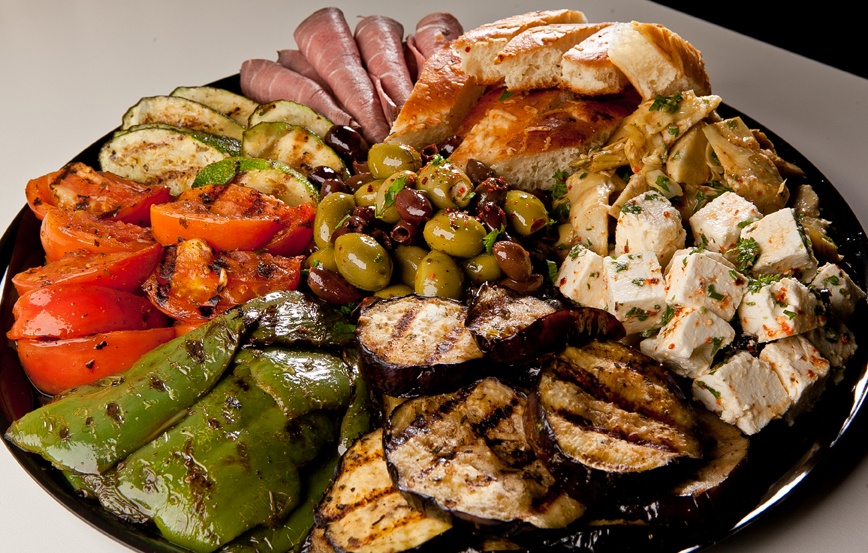The Mediterranean diet is not just a way of eating; it's a lifestyle that promotes longevity and vitality. Centered around whole, plant-based foods, healthy fats, and lean proteins, it emphasizes the consumption of foods that are not only good for our bodies but also for the planet. In this article, we'll delve into the intricacies of the Mediterranean diet and explore how adopting it can lead to more sustainable consumption practices.
History of the Mediterranean Diet
The roots of the Mediterranean diet can be traced back thousands of years to the ancient civilizations that flourished around the Mediterranean Sea. The diet evolved over time, influenced by factors such as geography, climate, and cultural exchange. What began as a simple way of nourishing the body with locally available ingredients has now become a globally recognized dietary pattern.
Key Components of the Mediterranean Diet
At the heart of the Mediterranean diet are fresh fruits and vegetables, whole grains, legumes, nuts, and seeds. Olive oil, a staple of Mediterranean cuisine, is used liberally for cooking and dressing salads. Fish and poultry are consumed in moderation, while red meat is enjoyed sparingly. Herbs and spices add flavor without the need for excess salt or sugar.
Health Benefits of the Mediterranean Diet
Research has shown that following the Mediterranean diet can lead to a multitude of health benefits, including improved cardiovascular health, weight management, and reduced risk of chronic diseases such as diabetes and certain types of cancer. The abundance of antioxidants, vitamins, and minerals found in Mediterranean foods nourishes the body from the inside out.
Environmental Impact of the Diet
In addition to its health benefits, the Mediterranean diet has a significantly lower environmental impact compared to typical Western diets. By prioritizing locally sourced, seasonal ingredients and minimizing the consumption of processed foods, followers of the Mediterranean diet reduce their carbon footprint and support sustainable agriculture practices.
Challenges and Misconceptions
While the Mediterranean diet offers numerous advantages, it is not without its challenges. One common misconception is that it is expensive or inaccessible to the average person. However, with careful planning and budgeting, it is possible to enjoy the benefits of the Mediterranean diet without breaking the bank. Adapting the diet to different cultural preferences and dietary restrictions may also require some creativity and flexibility.
Tips for Adopting the Mediterranean Diet
Transitioning to a Mediterranean-style way of eating doesn't have to be daunting. Start by incorporating more fruits, vegetables, and whole grains into your meals, and gradually reduce your intake of processed foods and added sugars. Experiment with new recipes and flavors, and don't be afraid to make substitutions based on what's available and affordable in your area.
Incorporating Sustainability Practices
In addition to focusing on the types of foods we eat, sustainability also encompasses how those foods are produced and consumed. When following the Mediterranean diet, consider buying locally sourced produce from farmers' markets or community-supported agriculture programs. Minimize food waste by planning meals ahead of time and repurposing leftovers creatively.
Community and Social Aspects
One of the hallmarks of the Mediterranean diet is its emphasis on communal eating and social interaction. Sharing meals with family and friends not only enhances the dining experience but also strengthens social bonds and fosters a sense of belonging. The cultural significance of food in Mediterranean societies underscores the importance of savoring and celebrating each meal.
Recipes for Sustainable Mediterranean Meals
Looking for inspiration? Try these delicious and nutritious recipes that showcase the flavors of the Mediterranean while promoting sustainability:
- Seasonal Vegetable Stir-Fry: Sautee a variety of colorful vegetables in olive oil with garlic and herbs for a quick and satisfying meal.
- Chickpea Salad with Lemon Vinaigrette: Toss cooked chickpeas with chopped vegetables, fresh herbs, and a zesty lemon vinaigrette for a refreshing salad that's perfect for lunch or dinner.
Success Stories and Testimonials
Countless individuals have experienced firsthand the transformative power of the Mediterranean diet. From improved health markers to increased energy levels and overall well-being, the testimonials speak for themselves. By making small, sustainable changes to their eating habits, people around the world are embracing the Mediterranean diet and reaping the rewards.
Visit Website: https://princesspitaaz.com/
Frequently Asked Questions (FAQs)
- What makes the Mediterranean diet sustainable?
- The Mediterranean diet promotes the consumption of locally sourced, seasonal ingredients, which reduces the carbon footprint associated with food production and transportation.
- Can I eat pasta on the Mediterranean diet?
- While pasta is not typically a staple of the Mediterranean diet, it can be enjoyed in moderation as part of a balanced meal, preferably made from whole grains and paired with plenty of vegetables and lean protein.
Conclusion
In conclusion, the Mediterranean diet offers a holistic approach to health and sustainability that is both accessible and enjoyable. By embracing the principles of this time-tested dietary pattern, we can nourish our bodies, protect the planet, and cultivate a deeper appreciation for the food we eat. Whether you're a seasoned chef or a novice in the kitchen, the Mediterranean diet offers something for everyone to savor and celebrate.
Read Also: https://techplanet.today/post/is-mediterranean-food-healthy-for-children


No comments yet